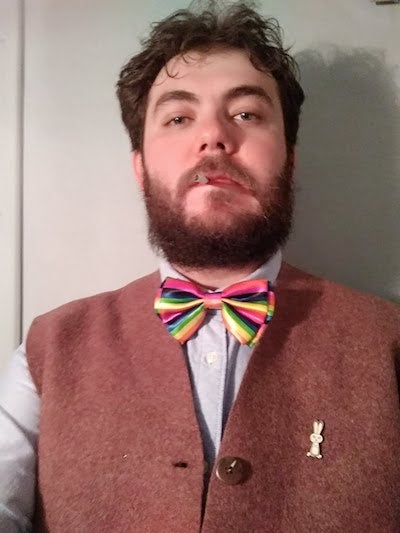Georgy Mamedov
Curator and writer
Assistant Professor, American University of Central Asia
Georgy Mamedov is a curator and writer based in Bishkek, Kyrgyzstan. History and practice of radical imagination and progressive re-interpretation and appropriation of the soviet socialist legacies are the central themes of his artistic and research projects. Georgy is the co-author of “Queer-Communist Manifesto” and several books, including A Book on Happiness for Young (and not so) LGBT (and not only) People (Bishkek, 2020), the pioneering Russian language collection of feminist and queer science fiction, Utterly Other (Bishkek, 2018); Queer Communism is Ethics (Moscow, 2016); Concepts of the Soviet in Central Asia (Bishkek, 2016)
and Bishkek Utopian (Bishkek, 2015). Georgy also regularly writes on politics, culture and art for international media outlets such as Jacobin and Open Democracy.
Georgy holds a position of assistant professor of film and media arts at the American University of Central Asia in Bishkek. In 2015, he became a chevalier of the French Order of Arts and Letters.
Dialectical Notes on the Human: Marxism as the Impossible, and the Impossible through a Marxist Lens
Marxism, and especially political projects inspired by it, socialism and communism, are notorious for their outward rejection of what we can loosely define as “spiritual”, from established religiosity to paranormal. At the same time, Marxism and socialism are often pictured by the mainstream (neo)positivist scientific discourses as “unscientific”, “dangerously utopian”, “dreamy” and so on. In other words, in the worldview of positivist science and liberal politics, both Marxism and the paranormal share the same label of “the Impossible”.
Departing from this paradoxical, yet potentially very productive, tension between Marxist materialist dialectics and experiences exceeding contemporary scientific explanations, Mamedov will outline a theoretical framework for epistemological and political interpretation and appropriation of the Impossible. In this attempt, Mamedov will turn to the transdisciplinary body of work by the authors of so-called “Soviet Creative Marxism”, namely philosopher and psychologist Evald Ilienkov (lived in Moscow), and Kyrgyz Soviet philosopher and psychologist Aron Brudny and biologist Emil Shukurov.


